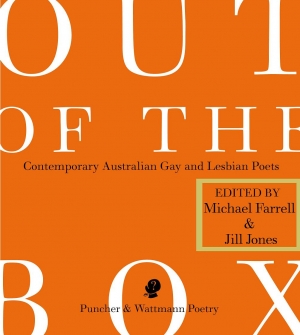Puncher & Wattmann
Mark Tredinnick’s much-anticipated first collection of poetry, Fire Diary, is an examination of place and how to respond to it. The title provides a clue to the form of the book; many poems chart the daily exigencies of living within nature. More importantly, the collection explores the moods and aspirations of the self ...
... (read more)Paul Kane reviews 'The Puncher & Wattmann Anthology of Australian Poetry' edited by John Leonard
‘Posterity is so dainty,’ complained the American essayist John Jay Chapman, ‘that it lives on nothing but choice morsels.’ Chapman was writing about Browning, whose work for his contemporaries meant life, not art. But, Chapman predicts, ‘Posterity will want only art’. It is a nice distinction when considering our penchant for anthologies. This daintiness goes all the way back to the first anthology, Meleager’s in ancient Greece, as the word itself means ‘flower gathering’, or simply a ‘garland’ or ‘bouquet’. We pick poems like flowers and arrange them in a book. The suggestion, of course, is that certain kinds of poems tend to get left out in favour of those that work best as stand-alone ornaments, giving us an unnatural notion of what’s actually out there growing in the fields.
... (read more)Gregory Kratzmann reviews 'Out Of The Box: Contemporary Australian gay and lesbian poets' edited by Michael Farrell and Jill Jones
Does the title of this anthology, heralded by its editors as the first collection of Australian gay/lesbian/queer poetry, refer to the myth of Pandora’s pithos? Hesiod’s version of the story, which sees Pandora as the unleasher of all manner of evils on the (‘rational’/patriarchal) world, has been interrogated by feminist scholars who see Pandora in an older incarnation of ‘gift-giver’, bestower of plenitude, crosser of boundaries. Or does ‘Out of the Box’ have a more colloquial sense – ‘exceptional’, ‘surprising’? Whatever the reasoning behind the title, Michael Farrell and Jill Jones have made choices which should provoke debate (among other things) about gay and lesbian identity and community, and about the relationship between poet and reader.
... (read more)Andrew Sant reviews 'The Human Project: New & Selected Poems' by Martin Langford
If despair and desolation can be said to have had a high point in poetry in English during the modern era, it is in T.S. Eliot’s poetry, particularly ‘The Hollow Men’. While reading Martin Langford’s remarkable The Human Project: New & Selected Poems, I was reminded of other poets whose reputations depend upon the discomforting poems they have written. The until recently neglected American poet Weldon Kees, who may or may not have jumped off the Golden Gate Bridge in 1955, wrote about the underside of the American dream, its sterility, in a tone of unwavering bitterness, but his noirish imagination and technical brilliance make the poems compelling. Something similar could be said of the English poet Peter Reading, whose expression of undiminished anger is a result of his disgust with humanity, and its condition terminal, though his pervasive self-righteousness can be wearing.
... (read more)Lyn McCredden reviews ‘Motherlode: Australian Women’s Poetry 1986 – 2008’ edited by Jennifer Harrison and Kate Waterhouse
This accessible new anthology collects the work of 125 women poets writing on the theme of motherhood. As well as having general appeal, it will introduce younger female readers of poetry to topics close to their own bodily, emotional futures.
... (read more)When it came to Iceland, Monty Python, as always, had the properly irreverent idea. Their version of Njal’s Saga was a horrendous case of interrupted narrative. It took ten minutes for their ‘very exciting Icelandic saga’ to get started, bogged down as it was in endless biblical begetting, and when things did kick off, the whole sketch unwittingly collapsed into an extended advertisement for a sleepy British town named Malden.
... (read more)‘Westering’ is a resonant archaism which makes a wittily ironic title for Peter Kirkpatrick’s new volume. This is work which has a decidedly début du siècle flavour in its hard-edged urban perspective on ‘out west’. The dialectic of city/bush, with its history from Henry Lawson and Banjo Paterson to Les Murray, is voiced in several registers through these finely crafted and sharply literate poems.
... (read more)






